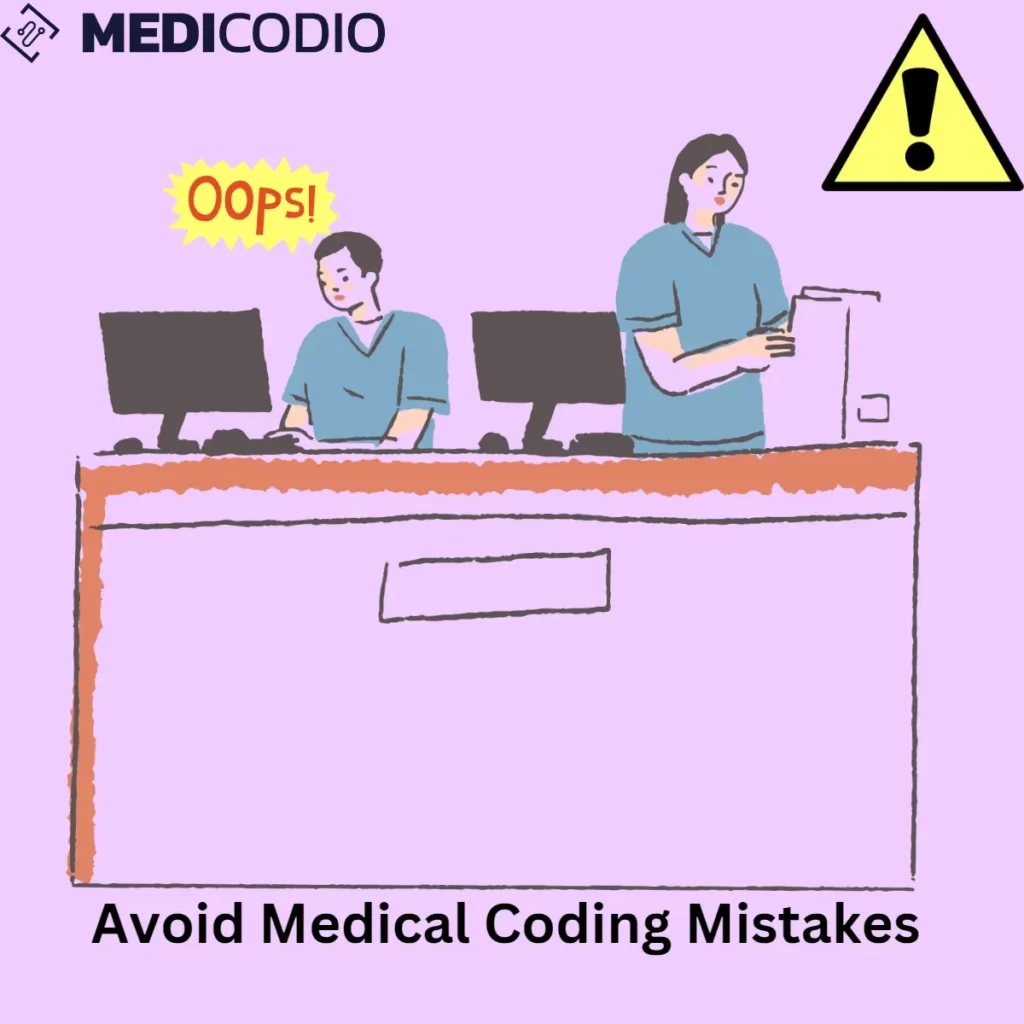Discover seven common medical coding mistakes that can lead to financial losses and compliance issues.
The healthcare industry has witnessed significant changes in the past decade, and emergency department (ED) crowding has skyrocketed over time. For a long time now, primary care providers, ambulatory centers, and other facilities are experiencing issues related to access, burnout, and rising practice costs. One of the major problems hindering the growth of the healthcare industry is inefficient, time-consuming manual processes.
Particularly in medical coding, the manual processes lead to backlogs, claim rejections, and additional burdens on already overloaded staff, resulting in poor cash flow, prolonged accounts receivable, and increased write-offs. These factors collectively impact revenue integrity. Just as each patient’s diagnosis and treatment require personalized attention, accurate and thorough coding is essential for each medical record.
By understanding and avoiding these errors, healthcare providers can enhance their revenue cycle management and ensure proper reimbursement.
- Insufficient Documentation: One of the primary reasons for medical coding mistakes is incomplete or inadequate documentation. Accurate coding relies on comprehensive medical records that capture all relevant details of a patient’s encounter. Insufficient documentation can result in incorrect code assignments, leading to potential revenue loss. It is crucial for healthcare providers to educate their staff on the importance of thorough and accurate documentation.
- Upcoding and Downcoding: Upcoding, the practice of assigning a higher-level code than warranted, can lead to inflated reimbursement and potential legal repercussions. Conversely, downcoding, which involves assigning a lower-level code, can result in revenue loss. It is essential for coders to accurately represent the complexity and intensity of each patient encounter to ensure proper coding and billing.
- Lack of Regular Coding Audits: Without regular coding audits, healthcare providers may overlook coding errors and compliance issues. Conducting routine audits helps identify coding discrepancies, improves accuracy, and mitigates potential financial and legal risks. Implementing an effective coding audit program is crucial to maintaining compliance and maximizing revenue.
- Ignoring Coding Guidelines: Coding guidelines, such as those provided by the American Medical Association (AMA) and the Centers for Medicare and Medicaid Services (CMS), are essential references for accurate coding. Failing to adhere to these guidelines can result in coding errors and claim denials. It is vital for coders to stay updated on the latest coding guidelines and ensure their practices align with industry standards.
- Inadequate Staff Training: Insufficient training and knowledge gaps among coding staff can lead to errors. Continuous education and training programs are crucial for coders to stay abreast of changing regulations, coding updates, and industry best practices. By investing in ongoing training, healthcare providers can ensure their coding team remains competent and up to date.
- Failure to Utilize Technology: In the era of advanced technology, leveraging coding software and tools can significantly improve coding accuracy and efficiency. Automated coding systems and encoders help coders select appropriate codes based on documentation, reducing the risk of human error. Integrating technology into the coding process can streamline operations and enhance revenue cycle management.
- The Lack of constant learning: new coding guidelines, regulations, and procedures are regularly introduced, requiring coders to stay updated and continuously expand their knowledge. Failing to engage in continuous learning can lead to various issues. Outdated coding practices may result in incorrect or inaccurate codes assigned to medical procedures and diagnoses. This can lead to claim denials, reimbursement delays, and even legal implications.
Avoiding common medical coding mistakes is crucial for healthcare providers seeking accurate reimbursement and compliance with regulatory standards. By addressing documentation deficiencies, implementing regular coding audits, adhering to coding guidelines, prioritizing staff training, and utilizing technology, providers can minimize coding errors, optimize revenue cycles, and ensure financial success. Keeping a vigilant eye on coding practices will not only protect the financial health of healthcare organizations but also ensure high-quality patient care in the long run.
Is there any software for accurate medical coding?
Yes! MEDICODIO is a promising automated medical coding software provider dedicated to simplifying medical coding workflows. We offer an AI-powered medical coding assistant, CODIO, to healthcare organizations, ambulatory centers, and RCM companies. Powered by deep learning and machine learning, CODIO suggests medical codes automatically by reading patient information from EHR systems, physician notes, and charts.





